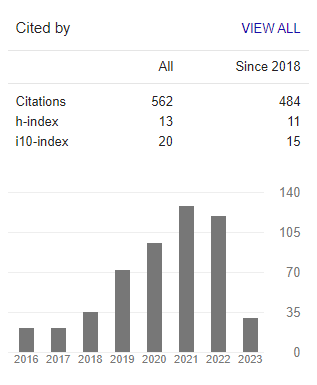PENERAPAN MANAJEMEN KOMUNIKASI STRATEGIK PADA MODEL DEMOKRASI DELIBERASI DALAM MENCIPTAKAN KEBIJAKAN PUBLIK YANG TEPAT
Abstract
Periode modernism telah berlalu karena munculnya euphoria globalisasi yang mulai menurunkan tingkat peranan dalam komunitas. Ranah public dalam sebuah demokrasi mempertahankan komunikasi dialektik antara market (society), organisasi produk (executive), dan organisasi politik (legislative). Terkait dengan studi kasus, penulis perlu menganalisa relevansi dari demokrasi terkait dengan informasi, pemahaman, dan argumentasi terhadap UU ormas No. 17/2013 berdasarkan kelompok FGD dengan akademisi, NGO (kementerian, konsil, LP3S), organisasi massa dan pemerintahan (kesbangpoal kemendagri divisi ormas) untuk menyiapkan program kerja untuk mencapai kebijakan. Hasil dari pengamatan terlihat bahwa masalah paling besar yang harus dipecahkan adalah mengenai panduan, kesenjangan (dalam definisi, tujuan, kenyataan, sumber daya), aplikasi dan dampak yang belum memenuhi kebutuhan LSM yang dapat dilakukan melalui capacity building. Tujuan dari model ini adalah untuk memberitahu masyarakat sebagai penggunadimana kebijakan dapat memengaruhi kehidupan sosial mereka, memiliki hak untuk secara bebas menyampaikan ide dan pikiran, dan kesetaraan.
Katakunci: komunikasi manajemen, konstruksi sosial, pemberdayaan masyarakat, kebebasan demokrasi.
Modernism period had been passed due the upcoming of the globalization euphoria that begin to decreasing the state role in community. Public sphere in a democracy retained dialectic communication between market (society), product organization (executive) and politic organization (legislative). Related with case study, writer need to analyze the relevancy of democracy deliberative in terms of information, understanding, argumentative of UU Ormas No. 17/2013 based on focus discussion group with academician, NGO (Kemitraan, Konsil, LP3ES), organization of civil society and government (Kesbangpol Kemendagri Divisi Ormas) to setting up the work plan program to achieve the equity of the policy. The results of the observation see that the biggest problem that need government to solves are about the guidance, the gaps (in the definition, objectivities, realities, resources), the applications and the impacts that still not meet the LSM/Ormas needs which can be do through capacity building. The purpose of this model is to tell that citizen as a user's - where the policies would impact their social life, had a right to deliberative their thought and minds freely, equally and rationale.
Keywords
Refbacks
- There are currently no refbacks.

This work is licensed under a Creative Commons Attribution 3.0 License.
Indexed by:
Archived in:
Listed in:
INTERNATIONAL ASSOCIATION FOR MEDIA AND COMMUNICATION RESEARCH

















